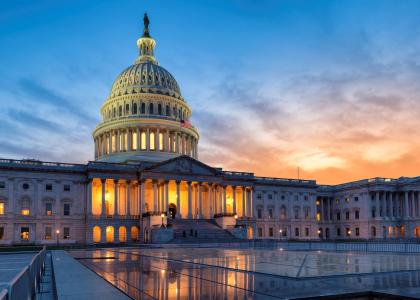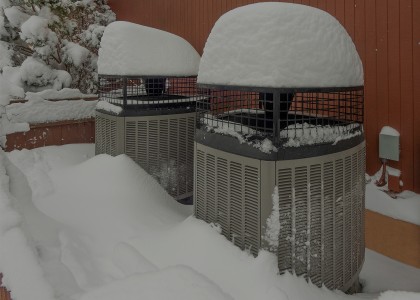The US Department of Energy’s (DOE) plan for national appliance standards for 2020 has come into focus, and the picture is not pretty. Hard on the heels of its rollback of light bulb standards in late 2019, the administration last week finalized its re-write of the process used for developing new energy efficiency standards. With this administration yet to complete a single standard update of its own and none close to completion, the re-write seems squarely aimed at tying the hands of future administrations.
A pending dishwasher final rule would not only roll back that standard, it would also take aim at the law’s provision prohibiting new standards that are weaker than current ones. Another pending rule would allow manufacturers to self-assign waivers from test procedures, and yet another would undercut standards for cook tops.
While DOE has been developing this slew of regulatory actions aimed at weakening the national program and taking it backwards, the agency has also been missing one legal deadline after another for updating standards and test procedures.
Is there any good news? With encouragement from DOE, manufacturers and efficiency proponents have been able to come together to reach consensus on how to make progress on future standards for two product categories, certain commercial air conditioning systems and swimming pool pumps. Now, it’s up to DOE to act on those consensus-based recommendations in 2020.
Interested in more details on any of these topics? Then read on.
Here are five DOE actions that will take the national program backwards in 2020:
-
DOE’s new process: harder, slower, and biased for industry. On Thursday, January 16, DOE released the final re-write of the process used to develop new and revised appliance standards. The new process, which DOE spent more than two years developing, adds steps to the regulatory process, increases deference to industry-developed test procedures and puts some potential new standards off-limits. See ASAP and ACEEE’s statement, and this Washington Post story for more details.
-
Anti-backsliding under attack. Responding to a petition from an anti-regulatory advocacy organization, DOE proposed to create a new dishwasher class that takes one hour or less to wash a load. Appliance manufacturers pointed out that a new class is not needed since about 90% of dishwashers already have a short cycle option, typically an hour or less. Here’s the rub: DOE would also eliminate the existing efficiency standards for these products. We argued—along with many others including the attorneys general of a dozen states and two cities, Natural Resources Defense Council, and Earthjustice—that the proposed action is a bald-faced, illegal attempt to circumvent the appliance law’s anti-backsliding clause. If DOE can eliminate an existing standard for dishwashers just by sorting products into a new class, then no standard is safe from elimination. DOE plans a final rule for early this year. Expect litigation. This story provides more details.
-
Forget about saving natural gas with future appliance standards. DOE plans to publish a proposed interpretive rule that will make it impossible for the Department to consider condensing technology as the basis for future natural gas appliance standards. Unfortunately, condensing technology is pretty much the only way to achieve large natural gas savings from appliances, and it could save consumers and businesses more than $100 billion while putting a big dent in carbon emissions from buildings that aren’t electrified. DOE initiated this rulemaking in response to a petition filed by the natural gas industry. ASAP and several allies have already submitted detailed comments opposing DOE’s plan.
-
Anybody can write their own test procedure. In spring 2019, DOE proposed a rule that would automatically grant manufacturers’ interim test procedure waiver applications if DOE fails to rule on them within 30 days. Since DOE rarely acts that quickly, we argued that the new process is tantamount to self-assigned waivers, striking at the core reliability of efficiency ratings and the national standards program. These “interim” waivers remain in place until DOE either grants or denies the permanent waiver or alters the underlying test procedure, something DOE is supposed to do within a year, but could take longer. Even if eventually denied, manufacturers get six more months to keep selling under the self-assigned waivers. DOE plans to publish the final version this year, but hopefully will back off some of the more reckless elements.
-
Standards for cook tops blocked. In August 2019, DOE proposed to withdraw the test procedure for cook tops, fulfilling a request from appliance manufacturers. As we pointed out in comments, data on the DOE record fails to support the Department’s proposed withdrawal. Eliminating the test procedure appears aimed at leaving consumers with less information and setting back any future administration’s potential efforts to set cook top efficiency standards.
DOE’s missed deadlines keep mounting, rulemaking work may pick up in 2020
Federal law requires DOE to review each appliance standard once every six years. If the agency finds that an upgraded standard is warranted, the new standard must be published two years later. Similarly, DOE must review each test procedure underlying national standards once every seven years.
DOE has now missed 21 standards deadlines and another 19 deadlines for test procedure reviews. Because the process for updating standards requires extensive investigation and multiple steps, it typically takes three years or longer. With most overdue standards still in their early stages, DOE will not be catching up on these overdue deadlines soon.
But, under increased oversight pressure from Congress, the agency appears to be picking up the pace of work. DOE’s 2020 regulatory agenda, published in November, shows that nearly every single product subject to DOE standards will have some active rulemaking phase in 2020. Election years are notorious for shutting down regulatory work, and DOE has rarely hewed to its published schedules under this administration, but, nevertheless, standards supporters should be prepared to actively engage in rulemakings for any number of products this year. For example, DOE opened the review processes for clothes washer and refrigerator standards recently, and solicited comments on revisions to the refrigerator test procedure.
Now back to the aforementioned good news. For two products, DOE helped foster constructive negotiations among manufacturers and efficiency supporters, including utilities, consumer groups and environmental advocates. An agreement reached last fall paves the way for DOE to adopt an updated test procedure and standards that will better reflect the actual performance of variable refrigerant flow (VRF) air conditioners, a type of commercial air conditioning system. Earlier in 2019, manufacturers and efficiency supporters agreed on action to close a loophole in existing swimming pool pump standards. These proposals are now in DOE’s hands.
This progress shows dialogue and compromise is possible, even in the current political climate. But, with so many pending actions that will take efficiency backwards, 2020 is shaping up as a year when any step forward could be swamped by DOE actions that will undercut national appliance standards.




